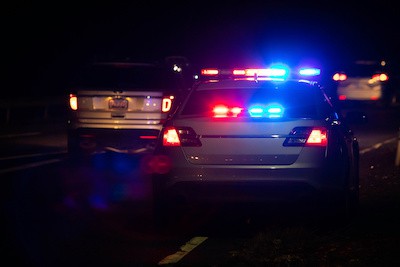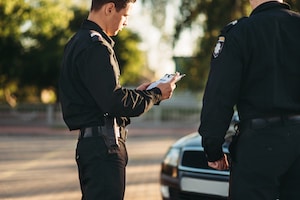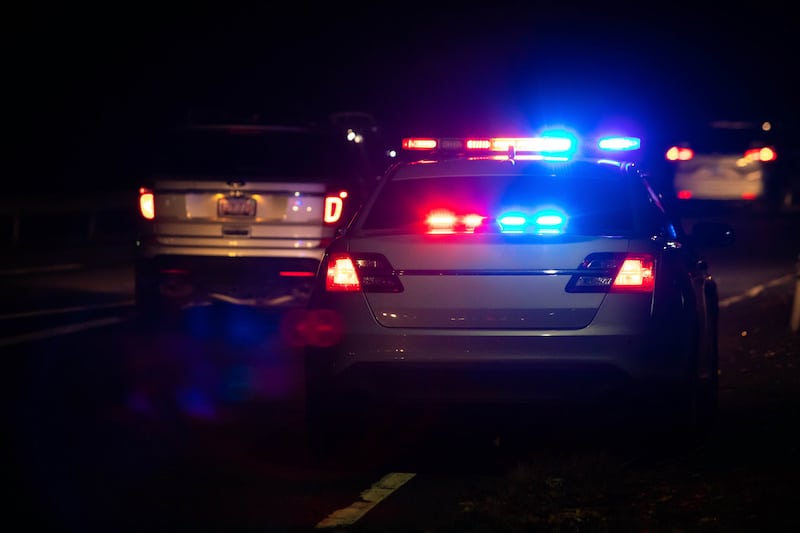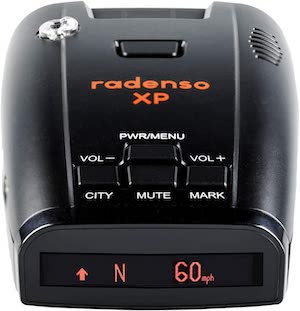Consequences of Getting Pulled Over in Another State
Regardless of the circumstances, getting pulled over for a traffic violation is never a pleasant experience. However, it can quickly become a complicated situation if you are pulled over while driving through another state? Do other rules apply to this situation? How do you proceed after receiving a traffic violation while out-of-state? These are important questions that many individuals do not consider until they find themselves in this less-than-ideal situation.
What happens if you get pulled over in another state? Getting pulled over in another state is quite similar to getting pulled over in your home state. You are more likely to receive a traffic violation as opposed to a simple warning when you are pulled over in another state as officers are more likely to ticket tourists. After an officer pulls you over in another state, you must still pay the resulting speeding ticket.
So, can you contest your speeding ticket after an officer pulls you over in another state? Will you have to return to that state to attend your court date? In this post, we will provide you with everything you need to know after getting pulled over in another state. We hope this information will clear up any confusion you are experiencing and provide you with a clear path forward.
Can You Get a Speeding Ticket in Another State?
Yes! You can most certainly get a speeding ticket or other traffic violation while driving in another state. In fact, you are more likely to receive a ticket when you are pulled over in another state than when you are pulled over in your home state. Officers are more likely to ticket tourists and visitors than drivers who call the state their home.
Additionally, when you are driving in another state, you may be unfamiliar with their unique laws. This leaves you open to a greater possibility of a traffic violation. Whether due to an intentional act such as speeding or an unintentional act such as violating a strange law, you are likely to get a ticket.
Do You Have to Pay a Speeding Ticket from Another State?
You may have heard a myth that you are not required to pay a speeding ticket or traffic violation from another state. Unfortunately, this is not the case! You are absolutely required to pay any tickets you receive as a result of being pulled over, whether in your state or another.
The myth that you don’t need to pay an out-of-state ticket comes from the belief that each state operates its own contained DMV system. While this is the case to some extent, there is some crossover when it comes to traffic violations.
Failing to pay your out-of-state speeding ticket could result in hefty late fines and additional restrictions. It could even compromise your ability to drive legally in your home state.
Driver’s License Compact & Non-Resident Violator Compact.
While states used to maintain their own records of speeding tickets and traffic violations received within their borders, there are now two compacts that make it possible for DMV departments to share cross-state information.
The Driver’s License Compact, as well as the Non-Resident Violator Compact, have been agreed to by all by two states, Michigan and Wisconsin. Under these compacts, states now exchange information with each other when a non-resident receives a traffic or speeding violation.
When you are pulled over in another state and receive a speeding ticket or traffic violation, that state’s DMV department will forward the information to the DMV department of your home state. In addition to having to pay the fine to the state in which you received the violation, the DMV of your home state may add additional restrictions as a result of the out-of-state offense.
The National Driver Register
However, the Driver’s License Compact and Non-Resident Violator Compact are not the only things that regulate an out-of-state traffic violation. The National Highway Traffic Safety Administration maintains a record of all licensed drivers in the United States. Under the National Driver Register, the NHTSA keeps information including each driver’s driving record.
Every state participates in the National Driver Register and submits information regularly. When the state is granting license privileges or renewing a license, they must reference the National Driver Register. If they see an out-of-state traffic violation or speeding ticket without a resolution, they will likely deny your renewal request temporarily.
As you can see, you must deal with any fines or fees you incur in another state. Failing to do so may result in additional fines or restrictions.
What To Do Following an Out-of-State Traffic Violation
 So, what do you do after receiving an out-of-state traffic violation? Do you proceed as you normally would with a violation received in your home state? For routine traffic violations, there are two primary courses of action: you may choose to accept the fine and pay your speeding ticket or you can work with a lawyer to contest your ticket.
So, what do you do after receiving an out-of-state traffic violation? Do you proceed as you normally would with a violation received in your home state? For routine traffic violations, there are two primary courses of action: you may choose to accept the fine and pay your speeding ticket or you can work with a lawyer to contest your ticket.
Choose to Pay Your Speeding Ticket
Many people assume that their only option after an officer pulls them over in another state is to pay their speeding ticket. While this is sometimes the quickest and most convenient way to eliminate the ticket, it will come at a cost. Additionally, if you pay your speeding ticket without contesting the charges, you will have to accept the points on your driving record.
Before deciding to pay your speeding ticket, it is wise to consider other options such as contesting the charges or seeking to lower your fine.
Work With a Speeding Ticket Lawyer to Contest Your Ticket
The best thing to do after an officer pulls you over in another state is to contact a speeding ticket lawyer in that state! You must work with a lawyer who is licensed in the state in which you received your ticket.
Everyone that receives a speeding ticket or traffic violation has the ability to contest their ticket. However, only around 5% of drivers decide to take this route. Contesting your ticket is the best way to lower your fines. You may also be able to eliminate the potential of points on your driving record.
A speeding ticket lawyer will be able to quickly look at your speeding ticket or traffic violation and begin to work in your defense. You can contest your ticket on your own. However, this will require you to travel to the county in which the violation originates. Depending on how far you were from home at the time, this can be both time-consuming and expensive.
Speeding ticket lawyers charge a nominal fee, especially when compared to the cost of a probate lawyer. While many drivers are hesitant about this additional fee, it often results in great financial savings in the long run.
By working with a speeding ticket lawyer, you eliminate the need to personally show up in court. Your legal representative will handle the case from start to finish. This will reduce stress while providing you with the best possible outcome.
Other Impacts of Out-of-State Traffic Violations
In addition to having to pay a fine after an officer pulls you over in another state, you may experience other impacts following your violation.
Point Added to Your Driving Record
Depending on the nature and severity of your traffic violation, as well as your past driving record, a traffic violation could result in points accumulating on your license. Most states have a set number of points that a driver can accumulate. Once they reach this number, the state will suspend their license for a period of time.
A simple speeding ticket may not add more than one point to your record. However, it is always best to eliminate the possibility of points accumulating on your license.
Issues Renewing Your License in the Future
The National Driver Register keeps track of the traffic violations and speeding tickets of every driver in the United States. If you receive an out-of-state traffic violation or speeding ticket that you do not address, you may experience problems renewing your license in the future.
Possible Increase in Insurance Rates
Many factors will influence whether your insurance rates will increase following an out-of-state traffic violation. If your home state adds the violation to your permanent record, the chances of an increase in insurance rates are rather high. Some states, however, do not allow insurance companies to increase their rates if a driver experiences a singular traffic violation.
Your local car insurance provider will be able to provide you with better information regarding your unique situation.
Finding an Experienced Oklahoma Speeding Ticket Lawyer
By far the most beneficial thing you can do after you are pulled over in another state is to find an experienced Oklahoma speeding ticket lawyer. They will be able to offer advice regarding your recent traffic violation or speeding ticket. Contesting a ticket is not a route that most drivers choose. However, with the help of a lawyer is the best way to achieve an optimal outcome.
Regardless of the severity of your fine, it is important to eliminate the possibility of future penalties and restrictions. Receiving a traffic violation in another state may seem to be more stressful than a ticket received in your home state. However, there is really no cause for additional stress or concern.
Thank you for reading! You can find more answers to life’s questions here.



